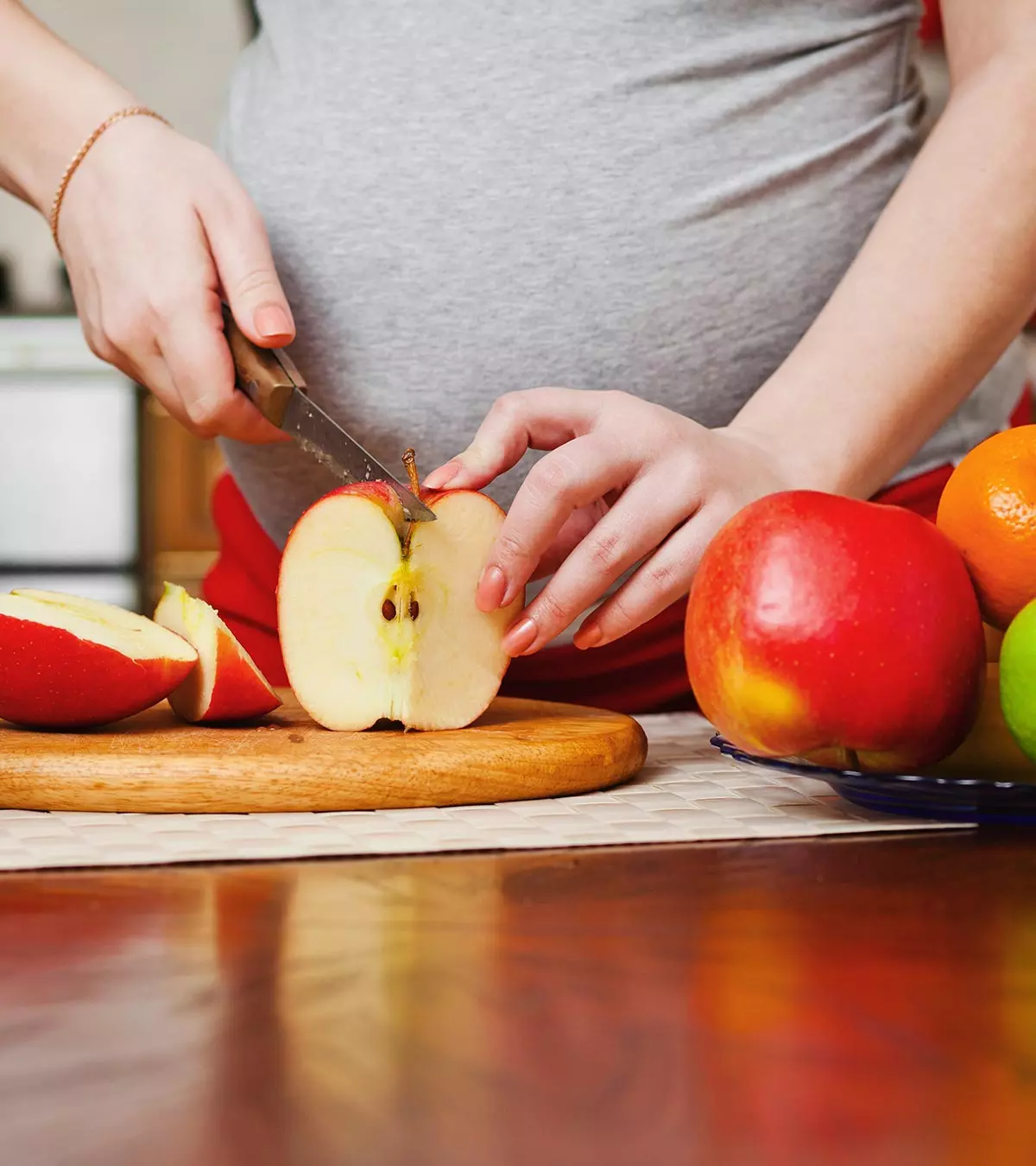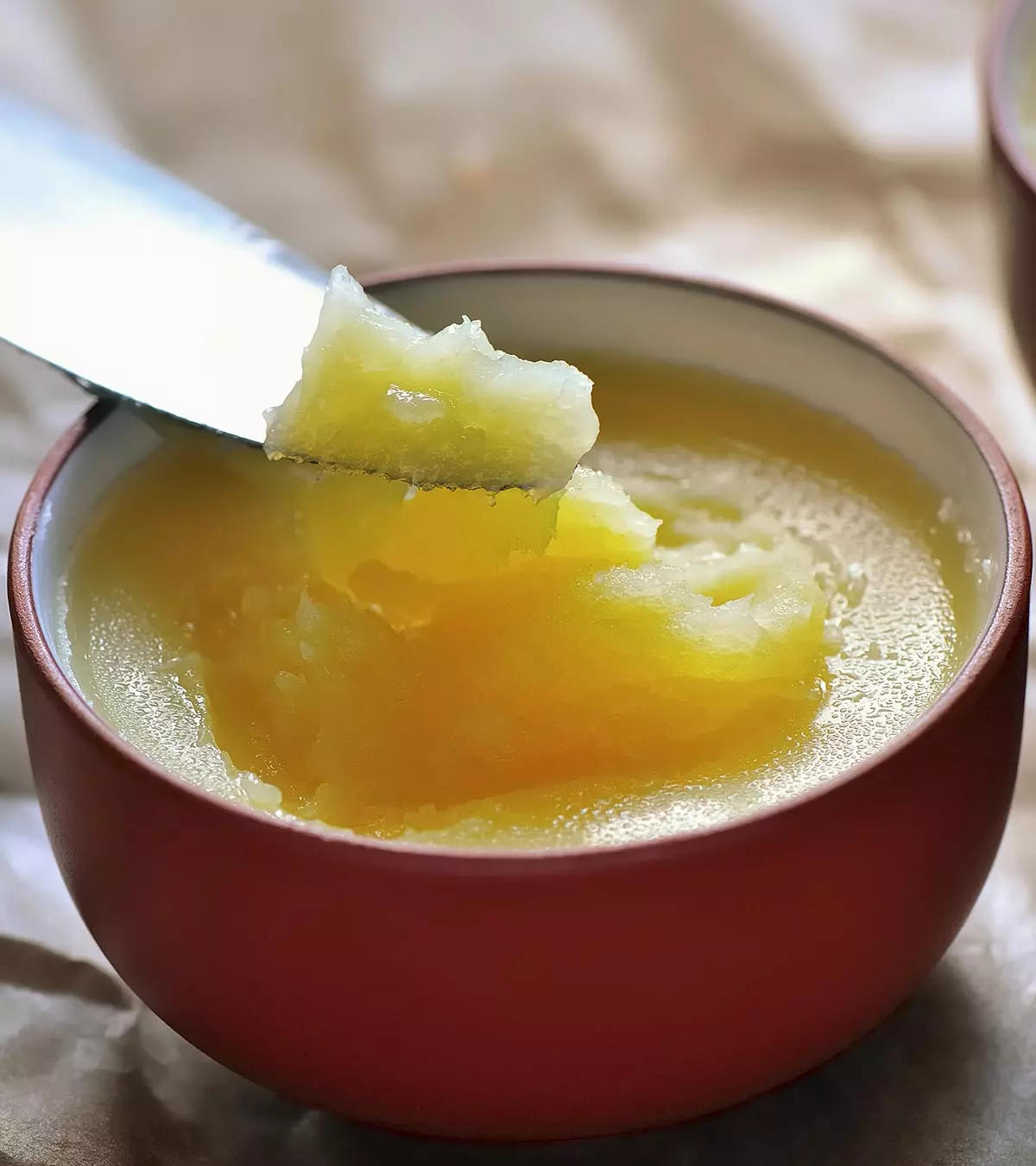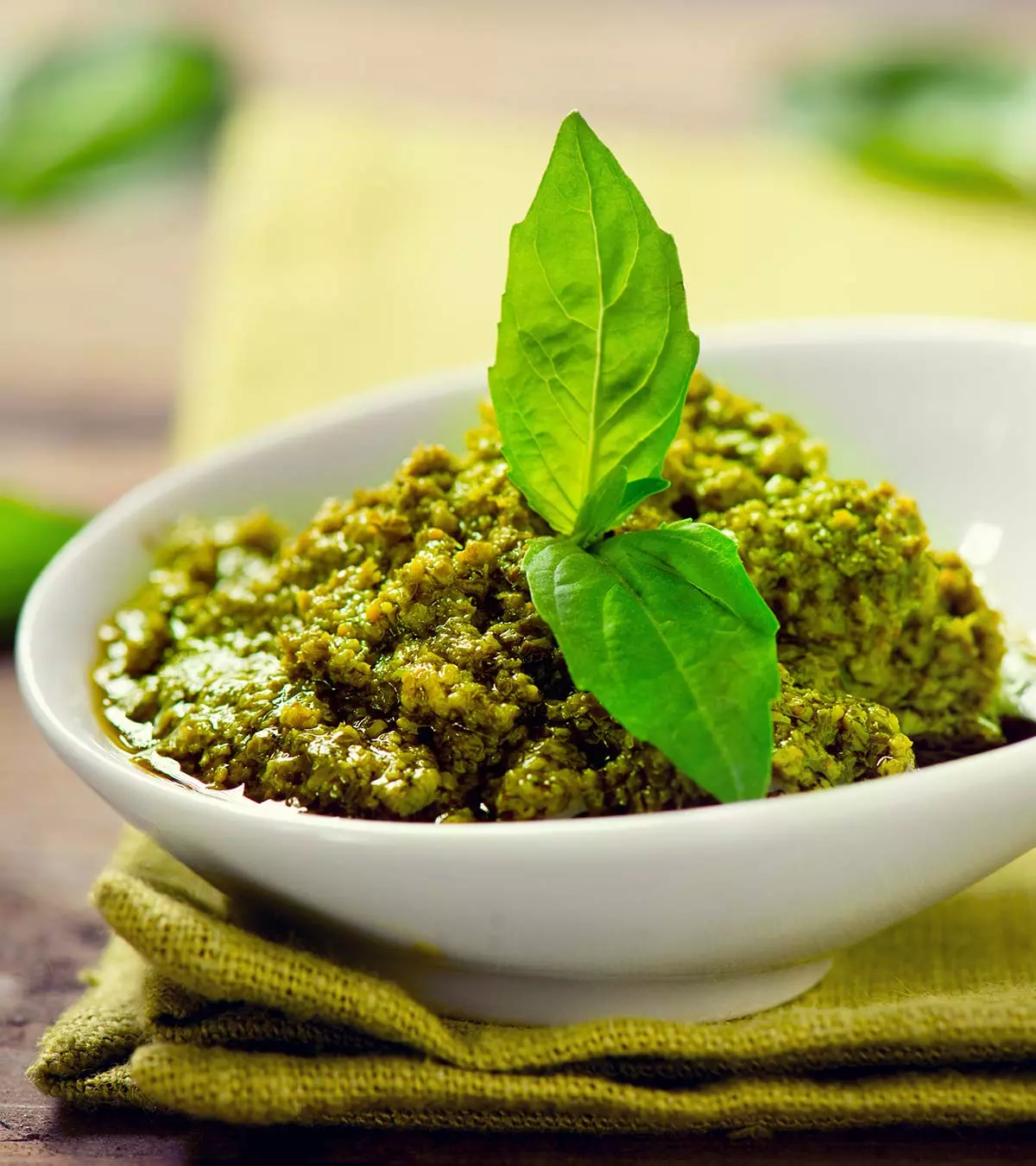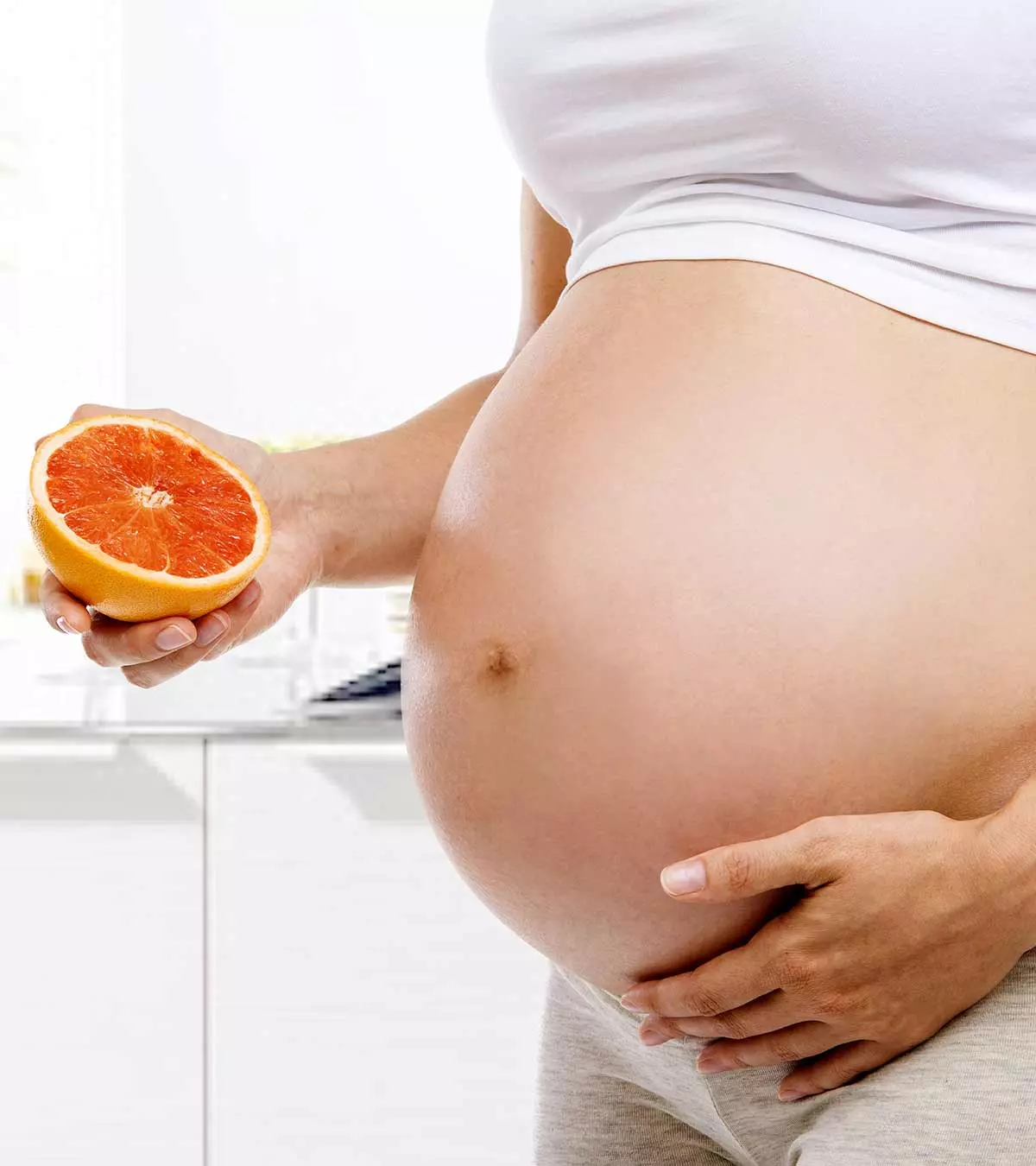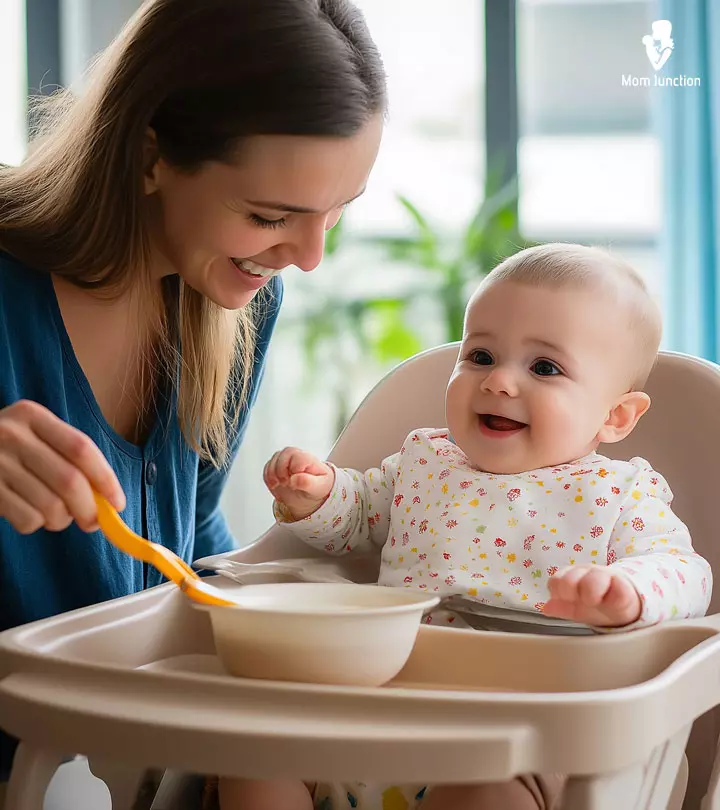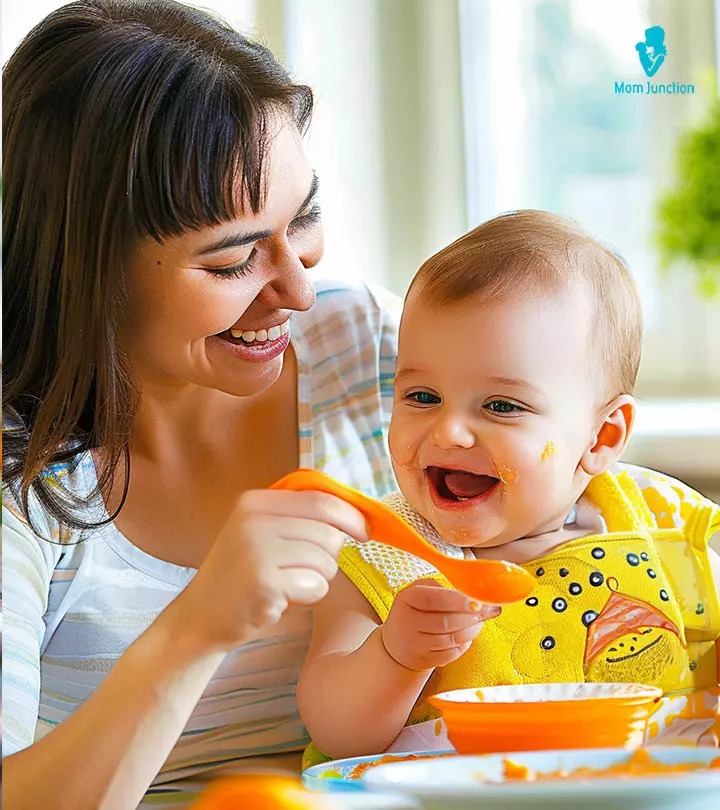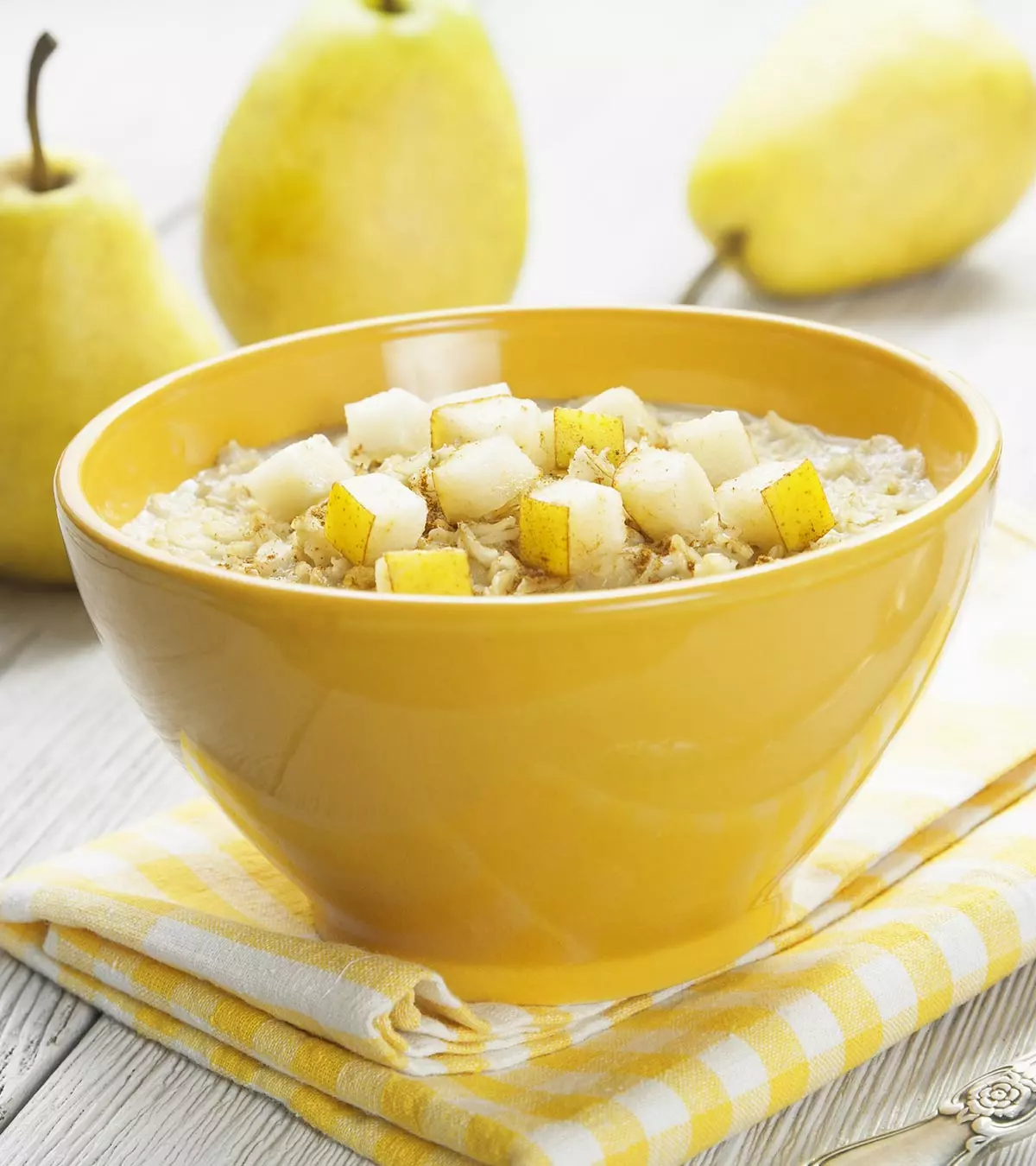
Image: Shutterstock
Valerian roots and other herbal supplements are often recommended in traditional practices and alternative medicine for sleep issues and other problems. They have been a popular choice for many seeking natural relief for sleep issues, but how safe are they during pregnancy, a time when caution is paramount? Can they be considered a safe alternative for sleep aids or anxiety medications? Many pregnant moms may want to stop medications for insomnia or anxiety since some can be teratogeniciToxic substances, a fetal exposure to which may cause congenital abnormalities in the baby or cause adverse pregnancy outcomes. Before consuming anything, irrespective of how safe it is for others, you should seek a doctor’s consultation for safe pregnancy medications to deal with any health issues. Keep reading the post to know more about valerian roots, safety, and effects.
Key Pointers
- Valerian root is a perennial herb used to treat sleeping disorders.
- Consumption during pregnancy is risky due to insufficient research on its effects on fetal health.
- Side effects of consuming Valerian root during pregnancy include dizziness, tiredness, headache, fatigue, irregular heartbeat, and dark urine.
- Valerian root can interact with other drugs or supplements, leading to adverse health complications.
What Is Valerian Root?

Valerian is a perennial herb, which means that the valerian plant grows for longer than two years. Its root is used for medicinal purposes and is most often used as a remedy for sleep disorders. It is also used to relieve anxiety, stomach pain, headache, menstrual cramps, and depression.
 Experts say
Experts sayThere are around 200 species of the herb. But V. Officinalis is the species most used for medicinal purposes. The stems (both horizontal and underground) are also used as ingredients in herbal products.
Valerian root is available in the form of powder or tinctures. Its consumption is mostly in the form of tea. It is also used with other herbs and botanicals such as passionflower, lemon balm, hops, and others. These herbs do the job of masking the rather putridiAn unpleasant odor smell of valerian root (1) (2).
Is It Safe To Use Valerian Root During Pregnancy?

If you are pregnant, it is better for you to avoid valerian root. There is insufficient research available on the use of valerian root in pregnancy and its effects on fetal development and maternal health (3). Consult with your doctor if you want to use valerian root during pregnancy.
Some safety concerns with valerian root use during pregnancy:
- There is not enough research available yet on the safe use of valerian root for all purposes. Valerian root is available as a dietary supplement. But the U.S. Food and Drug Administration (FDA) does not regulate herbal or dietary supplement ingredients with the same stringency as it does with drugs. Therefore, herbal products like valerian root are available in the market even without adequate research on their safety and use during pregnancy (4).
- Some studies indicate that maternal use of valerian root may reduce the level of zinc in your developing baby’s brain. Zinc is a necessary element for proper brain development (3). Lack of zinc can adversely affect your baby’s brain function in many ways (5).
- Valerian use is also known to cause sleepiness. If you are pregnant, excessive drowsiness may prove to be even more dangerous for you (6). You may risk a fall and cause fetal injury. If your doctor approves your use of valerian root, be careful with tasks that require you to be extra vigilant such as driving, exercising, or similar activities.
 Research finds
Research findsSide Effects Of Using Valerian Root During Pregnancy

Valerian is a safe herb to use in most cases. It doesn’t lead to severe problems when used regularly. All herbal remedies, like medicines, may produce side effects. Possible side effects of valerian root use may be dizziness, tiredness, headache, fatigue, irregular heartbeat, dark urine, among others (4). In some cases, withdrawal symptoms may also be possible (6).
Drug Interactions
Valerian may react with some drugs (1).
- Valerian can add to the effect of sedatives. Some examples can be medicines for insomnia such as ramelteon (Rozerem), zolpidem (Ambien), eszopiclone (Lunesta), zaleplon (Sonata), and ramelteon (Rozerem). Or tranquilizers like benzodiazepines, such as diazepam (Valium) and alprazolam (Xanax), and depressants that work on the central nervous system such as propofol (Diprivan).
- It can also interact with antidepressant medicines like amitriptyline (Elavil).
- Interactions are also possible with anticonvulsants (a drug to treat seizures) such as phenytoin (Dilantin) and valproic acid (Depakote).
- Valerian can also interact with antihistamines (drugs for seasonal allergies).
- Other interactions are possible with statins (for cholesterol) and antifungal drugs. As valerian breaks down in the liver, it can slow the breakdown of other herbs or any other drug that also goes through the breakdown process with the help of liver enzymes.
- It can also interfere with anesthesia. If you are using valerian regularly, it can add to the effect of the anesthesia and cause surgical complications.
- Valerian during pregnancy can also reduce the effect of other dietary supplements like kava, melatoniniA natural hormone that helps regulate the sleep-wake cycle , skullcap, sage, catnip, calamus, St. John’s wort, and others. These herbs are also sedatives. So, using any of these with valerian root may increase sleepiness. These interactions may also increase the side effects of valerian root (8).

Using Herbal Remedies During Pregnancy
The use of herbal and natural remedies during pregnancy is prevalent in many cultures. Some remedies may work for you; others may not work at all. Some herbal products can cause side effects while others may provide you relief from certain health issues. But the fact remains that there is no sufficient scientific data available on the use of herbal products during pregnancy (7).
A Word Of Caution:
- If you plan to use any herbal product such as valerian root during pregnancy, do so only when your doctor recommends it. Ask if the condition you want to treat through a herb can be treated with safe medicines. ‘Safe’ for you means drugs that have scientific evidence to prove are safe for maternal use (8). Do not be afraid to discuss the benefits and side effects of any herb or drug your doctor prescribes for you (9).
- When using medicinal herbs, treat them with the same caution you do when using medicines during pregnancy. The use of herbs may cause miscarriages, premature uterine contractions or harm the fetus. Herbs may contain compounds that may increase your risk of preterm deliveries (10). Even if a herb is safe for someone, there is a possibility that it may be harmful to you due to your pregnancy or otherwise.

- Remember that even herbs that are considered safe to use may be harmful to pregnant women. For instance, safe herbs like rosemary and sage that are being used in traditional medicine for ages are known to be harmful during pregnancy in large doses (11). A few can cause uterine contractions. Herbs like chamomile can interact with blood-thinning drugs like warfarin (9).
- With valerian root, take the side of caution and do not use it during pregnancy. If you suffer from insomnia or have trouble sleeping, use another product that is safe to use during pregnancy. Also, avoid valerian root if you are planning your pregnancy or are a nursing mother.
Frequently Asked Questions
1. How does valerian root work?
Scientists believe consuming valerian root increases a chemical called gamma-aminobutyric acid (GABA) in the brain. This chemical can regulate nerve cells and have a calming effect on anxiety (1).
2. Is valerian root better than melatonin during pregnancy?
There’s no scientific evidence that valerian root or melatonin is safe and effective during pregnancy. Thus, it is vital to speak to your doctor before trying either option for stress relief, relaxation, and sound sleep.
3. What are the alternative remedies or techniques for managing anxiety or sleep issues during pregnancy?
Relaxation techniques like yoga, massage, and acupuncture are good for managing anxiety or sleep issues during pregnancy. If you feel worried about your labor, try setting aside time for meditation and journaling (14). In addition, sleep on your left side with slightly curled legs and use a few extra pillows to feel at ease (15).
The fact that a herb is natural does not guarantee its safety during pregnancy. They have an equal possibility of causing adverse outcomes as other medications if not used cautiously and in the proper doses. It’s essential to be aware of herbs to avoid during pregnancy to protect both mother and baby. Valerian root during pregnancy is not recommended due to a lack of adequate scientific evidence to prove its safety during this time. It is generally used as a sleep remedy and may cause dizziness or excessive sleepiness during pregnancy. Although Valerian is a safe herb, you should consult an expert before taking it during pregnancy.
Infographic: Potentially Unsafe Herbs For Pregnant Women
There are many herbs that medical professionals do not recommend pregnant women take. In addition, many natural herbs do not go through the FDA evaluation and are not safe. Read the infographic below to learn about some herbs to avoid during pregnancy.

Illustration: Momjunction Design Team
Illustration: Valerian Root During Pregnancy - Everything You Need To Know

Image: Stable Diffusion/MomJunction Design Team
References
- Valerian.
https://www.mountsinai.org/health-library/herb/valerian - Valerian.
https://www.uofmhealth.org/health-library/uh1083spec - Tariku Laelago Ersado; (2018); Herbal Medicine Use during Pregnancy: Benefits and Untoward Effects.
https://www.researchgate.net/publication/329829150_Herbal_Medicine_Use_during_Pregnancy_Benefits_and_Untoward_Effects - Valerian Valeriana officinalis oral dosage forms.
https://my.clevelandclinic.org/health/drugs/18708-valerian-oral-dosage-forms - Luc P Brion et. al.; (2020); Role of zinc in neonatal growth and brain growth: review and scoping review.
https://pubmed.ncbi.nlm.nih.gov/33010794/ - Valerian.
https://ods.od.nih.gov/factsheets/Valerian-HealthProfessional/ - Herbal medicines.
https://www.nhs.uk/conditions/herbal-medicines/ - Pregnancy and medicines.
https://womenshealth.gov/a-z-topics/pregnancy-and-medicines - Medicines and side effects.
https://www.betterhealth.vic.gov.au/health/conditionsandtreatments/medicines-and-side-effects - Sílvia M. Illamola et. al.; (2019); Use of Herbal Medicine by Pregnant Women: What Physicians Need to Know.
https://www.ncbi.nlm.nih.gov/pmc/articles/PMC6962104/ - Herbs and Pregnancy.
https://americanpregnancy.org/healthy-pregnancy/is-it-safe/herbs-and-pregnancy/ - Valerian Root for Sleep.
https://www.sleepfoundation.org/sleep-aids/valerian-root - Valerian Root (Valeriana officinalis).
https://restorativemedicine.org/library/monographs/valerian-root/ - How can you manage anxiety during pregnancy.
https://www.health.harvard.edu/blog/how-can-you-manage-anxiety-during-pregnancy-202106252512 - Pregnancy and Sleep.
https://www.sleepfoundation.org/pregnancy
Community Experiences
Join the conversation and become a part of our nurturing community! Share your stories, experiences, and insights to connect with fellow parents.
Read full bio of Dr. Zeel Gandhi
Read full bio of Ria Saha
Read full bio of Swati Patwal
Read full bio of Lorraine Teron







